
In addition to Apple products, other luxury items that are usually beyond the reach of ordinary people in this life are popular.
This list includes Louis Vuitton bags, Lamborghinis, brand-name laptops, watches, garments, delicate models of villas and even private jets.
Multi-billion-dollar foreign "banknotes", passports and cosmetics are made, too.
Some of the paper products look exactly like the real thing. The prices range from several yuan to several hundred. The most expensive paper villa on Taobao was priced at 16,888 yuan.
Sellers have been busy, including Jiang Zhaohui, who co-owns a Taobao shop in Shanghai that sells paper objects.
He said paper imitations of electronic devices like the iPhone appeared on the market several years ago. Of course, like the real products, they upgrade quickly.
"They still sell well this year. Most of the purchasers are young people, who are usually more familiar with the popular electronic devices," says Jiang, adding that they prefer such products to the traditional offerings.
Records show that in the past two weeks, his shop has sold more than 120 sets of paper Apple series products, each costing 40 yuan per set. "They care much about the quality and the workmanship. And for Apple products, they make sure there are chargers and an introduction, etc.," Jiang adds.
Cameras and luxurious villas are among other best-selling products. The most expensive one in his shop is a self-designed Bugatti Veyron car, which took workers two weeks to finish and is priced at 1,000 yuan for one.
While most people buy ready-made products, some are looking for customized items. For example, Jiang has made printers, a driver's license, TV sets and tools for calligraphy for some customers.
They usually design the products themselves and hire workers to make them. Handmade products usually have better quality and cost more, Jiang said.
Fashionable paper offerings are hot in brick-and-mortar stores, too. In Majuqiao town in the suburbs of Beijing, a whole street is dedicated to this type of items, but they also sell traditional offerings like joss paper and gold ingots.
"We hope our loved ones can also feel the progress of our society and enjoy the things in the afterlife," says a customer surnamed Huang. "It's natural for offerings to keep up with the times."
However, these ideas are generally not recognized by the law or even accepted by the public, with many seeing these modern offerings as a joke.
Experts believe that the pursuit of increasingly fashionable or extravagant sacrificial offerings at memorial services is the result of underlying public anxiety over increasing pressure in daily life.
A 1997 law on funeral rites explicitly prohibits the making and selling of these paper replicas, which are deemed to be a symbol of superstitious practices.
Authorities continue to encourage the public to use flowers instead of fire at ceremonies and have issued bans on burning things in public cemeteries.
Despite the ban, the gray market of paper offerings continues to thrive, especially in less-developed rural regions, and new types of offerings, such as the paper iPad series, continue to emerge.
 |


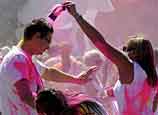
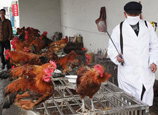

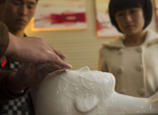
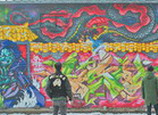

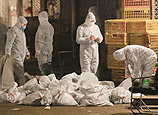
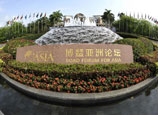








![]()
